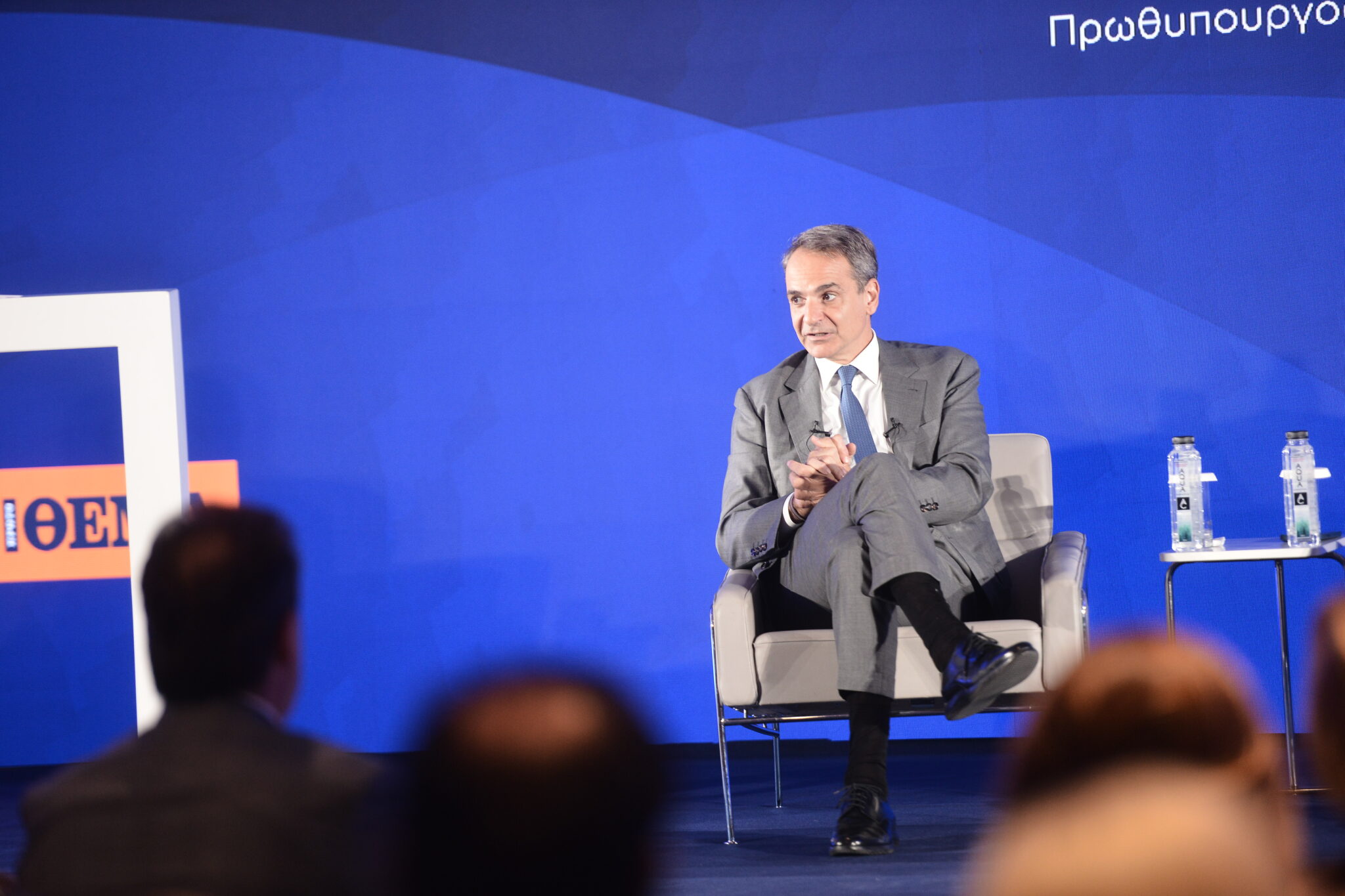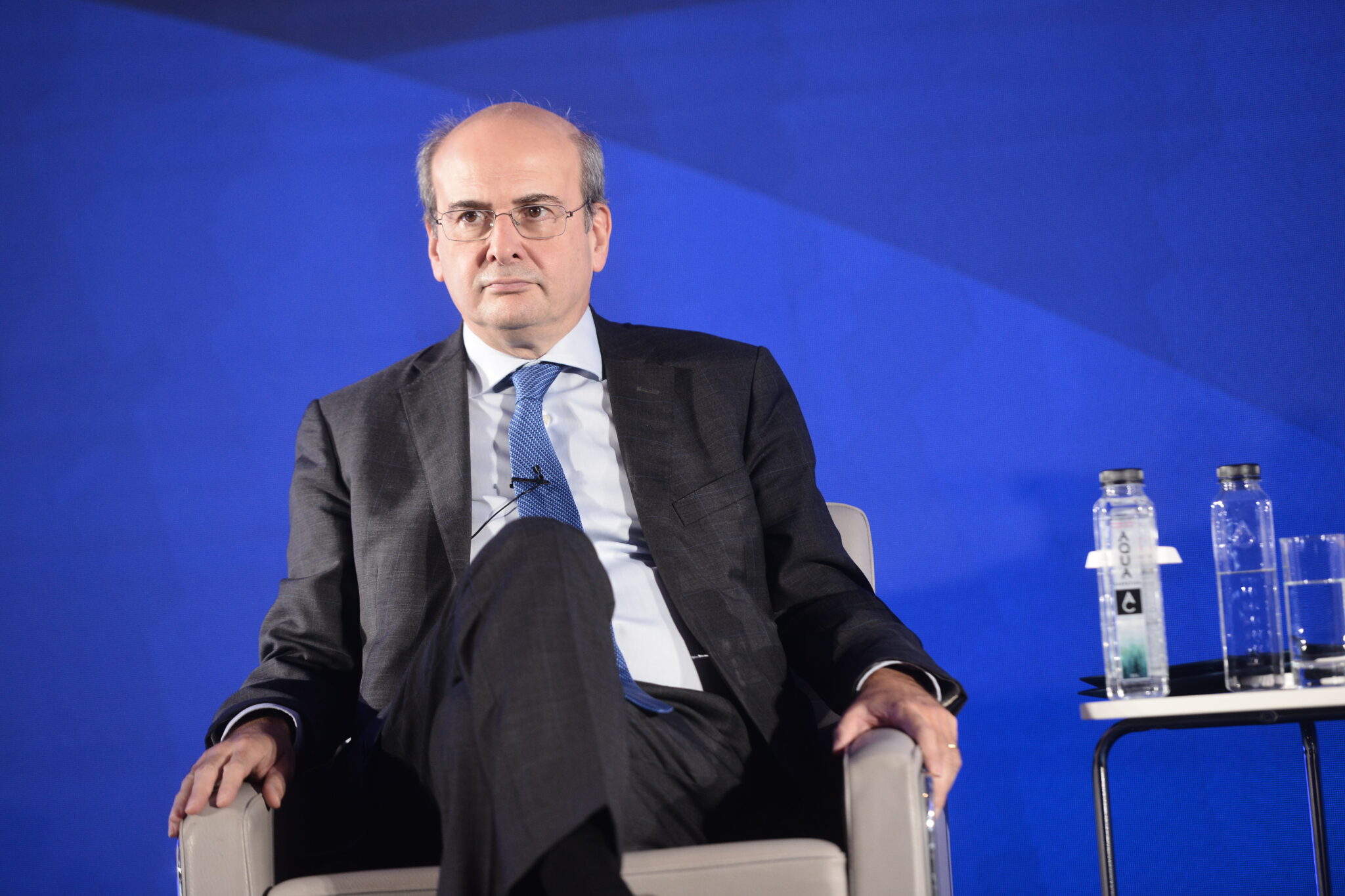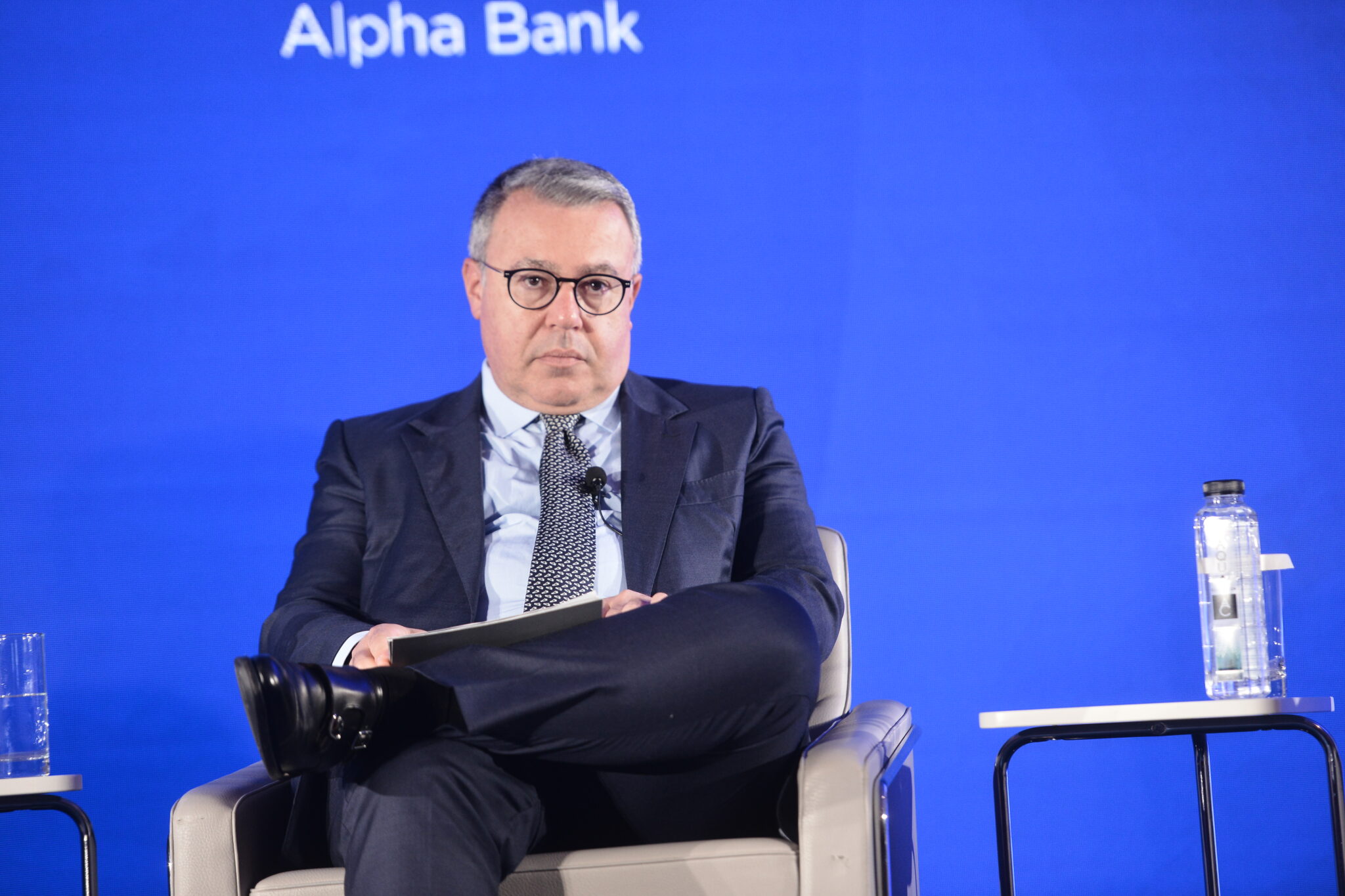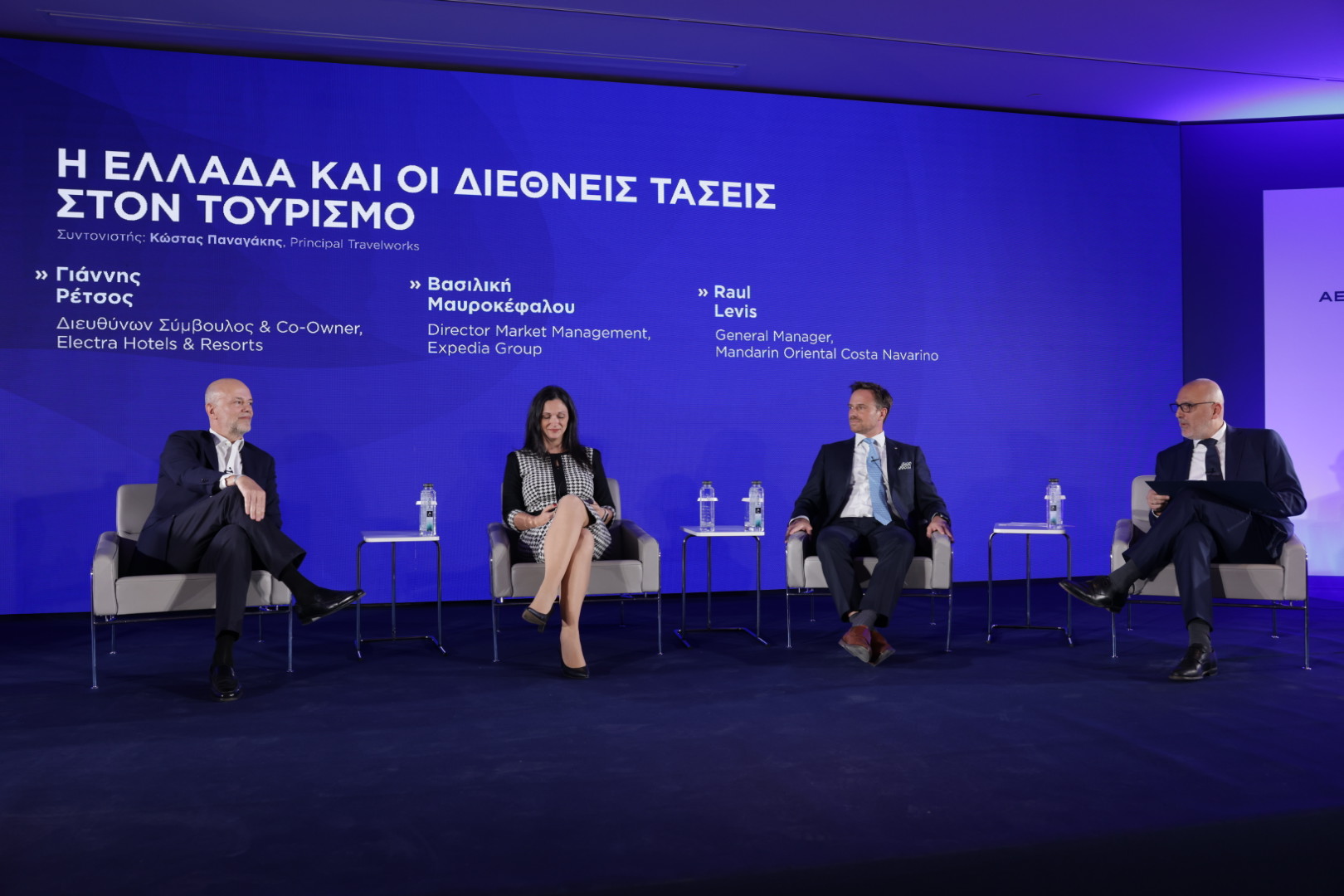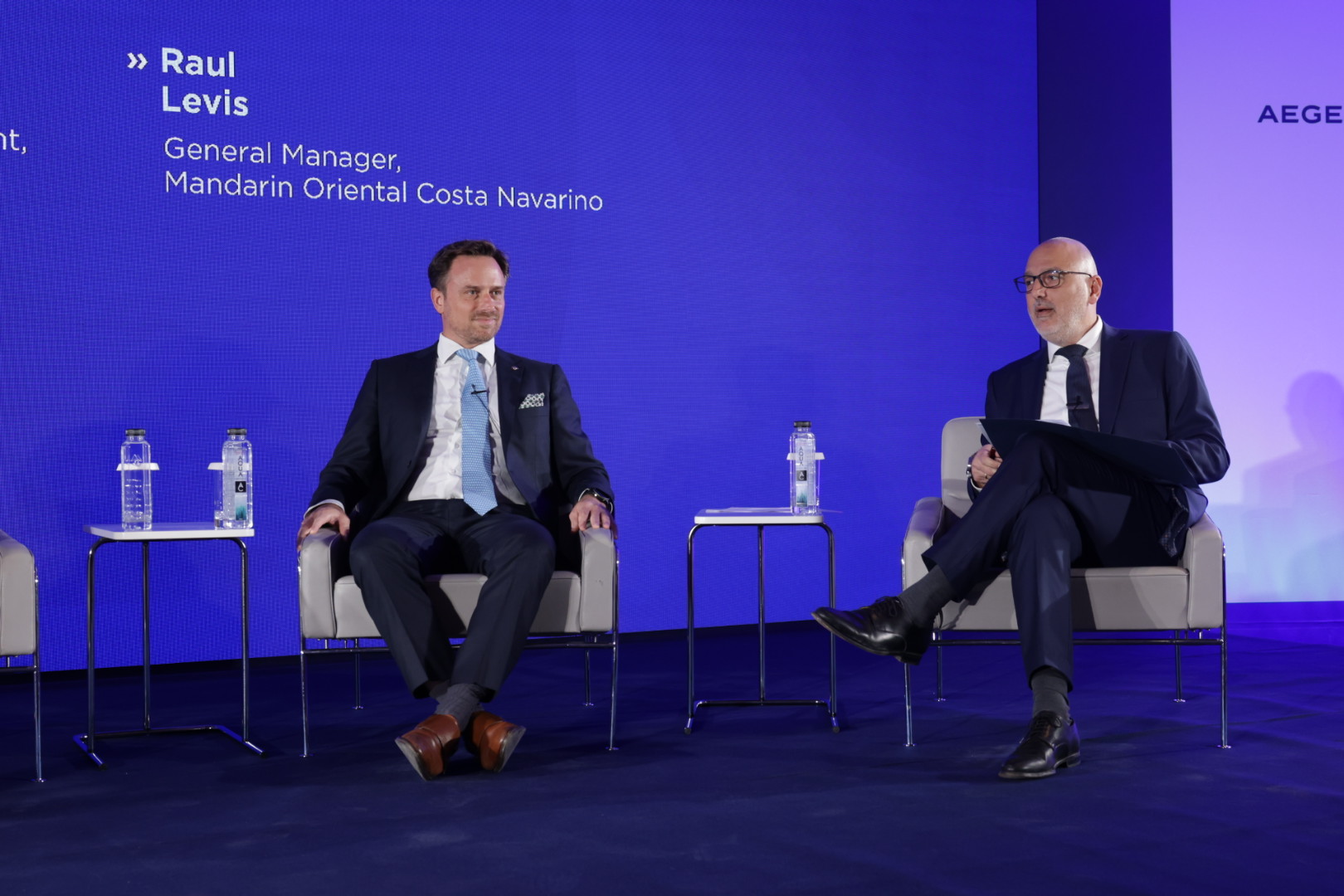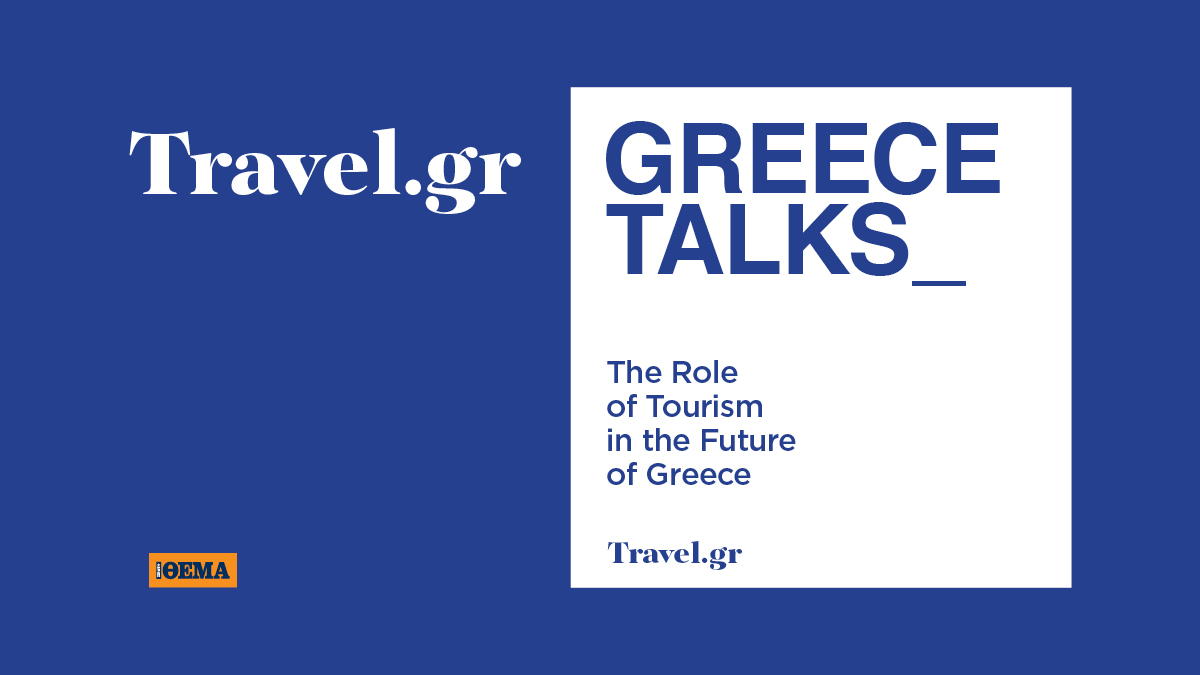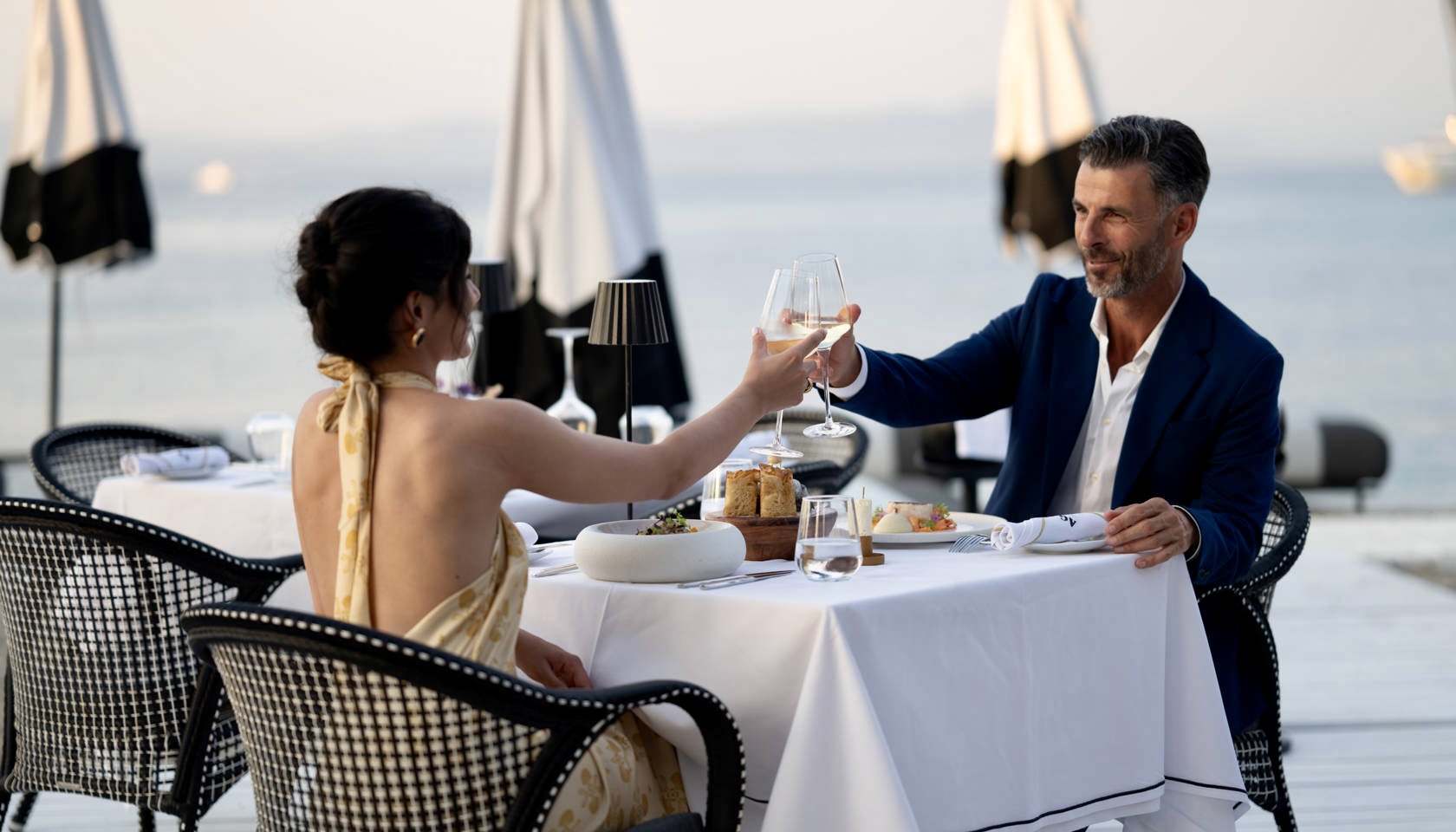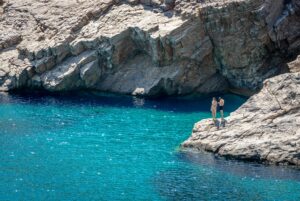Organised by Proto Thema with Travel.gr, a major conference on Greece and tourism took place on November 16 at the Stavros Niarchos Cultural Centre’s Lighthouse. Titled “The Role of Tourism in the Future of Greece,” the Greece Talks conference set the stage for a thought-provoking, informative and inspiring dialogue with experienced speakers and distinguished professionals from the tourism sector.
Prime Minister Kyriakos Mitsotakis, along with leading figures from the hospitality, construction, and aviation sectors, convened for the first time on the same panel at the Lighthouse of the Stavros Niarchos Foundation Cultural Centre to address critical questions regarding prospects and opportunities in the tourism sector.
The Prime Minister participated in a panel with Achilleas Konstantakopoulos, Chairman of TEMES AE, Eftychios Vassilakis, Chairman of AEGEAN, and Odysseas Athanasiou, CEO of LAMDA Development about the role of tourism in Greece’s future and how a destination is created. Journalist, Antonis Sroiter, moderated the discussion.
Speaking at the Travel.gr conference, the Prime Minister noted that Greece has not suffered losses in the tourism sector due to the war in Ukraine, and he hopes for the same regarding the conflict between Israel and Hamas. He emphasised that private initiatives are the lifeblood of tourism, highlighting that people’s ongoing need to travel and unique experiences that tourism provides are unique attributes of the country.
Achilleas Konstantakopoulos, Chairman of TEMES AE, said that “Initial signs are promising. We haven’t seen any negative developments following the war in Ukraine. Tourism is here to stay, and Greece is aiming for high-end tourism.”
Eftychios Vasilakis, Chairman of AEGEAN said: “This winter, Athens’ numbers are looking very good. Regarding crises related to wars, despite the tragic circumstances Greek tourism-related businesses have developed a resilience and adaptability in the face of crises,” he said.
Odysseas Athanasiou, CEO of LAMDA Development, spoke about the Elliniko complex. “The Costa Navarino investment has had very positive impacts on the entire region. Everyone in Pylos and its surrounding area has never ceased expressing how rewarded they feel by this investment. For Elliniko, we also set the bar high from the start, not just to become one of the top 10 international destinations but to start at the highest standard and continue that way,” remarked Athanasiou, adding: “We are creating the world’s largest seaside park, from which people can venture anywhere they want either on foot or by bicycle within a 15-minute radius.”
The Impact of Tourism on the Greek Economy
The Minister of Economy and Finance, Kostis Hatzidakis, spoke at a panel with Minister of Tourism Olga Kefalogianni, Managing Director of Grecotel, Mari N. Daskalantonaki and Vasilis Psaltis, CEO of Alpha Bank. Speaking about short-term rentals, Minister Hatzidakis emphasised that the government’s regulations are already in the tax bill, stating that entrepreneurs should be taxed accordingly.
“We differentiate short-term rentals by owners with more than three apartments because we consider it a business activity, similarly when rentals exceed 60 days. We need to maintain a balance, we want both sides; we know not everyone is happy,” the Finance Minister added. “The income declared from short-term rental platforms has increased tenfold in the last four years, precisely because of our collaboration with these platforms, he explained.
A Transformative Decade in Greek tourism
“Ten years ago, we were discussing the very same issues, but under very different circumstances,” the Minister of Tourism said. “It is vital that we remain optimistic and creative, as Greek tourism has proven resilient and capable of thriving even under challenging conditions.” As previously noted by Achilleas Konstantakopoulos in a panel with the Prime Minister, the state’s role is to create an investment-friendly institutional framework that allows private enterprises to flourish.
Reflecting on the past decade, she mentioned modernisation efforts to develop new tourism products, like condo hotels. “Today, thanks to legal modifications we made back then, entities like Hilton can evolve under contemporary terms,” she said, acknowledging that many of today’s investments have stemmed from these institutional changes.
Additionally, Kefalogianni underlined that the Ministry of Tourism has established a ‘One stop shop‘ to facilitate investors. Beyond creating an investment-friendly framework, the state must ensure legality and conduct effective market controls, both in labour and general compliance. “We’ve moved beyond the cycle that defined Greek tourism during the crisis years, entering a new era of development for our national tourism product,” she stated, emphasising that a new avenue is opening for Greek tourism.
Sustainability, social cohesion, respect for people, local communities, and the natural and cultural environment are at the core of the Ministry’s support for investments. The Recovery and Resilience Facility presents a significant opportunity. “In these past four months, we’ve been working intensely on something quite unique, not knowing if such substantial recovery funds will be available in the future,” she said.
Four major calls for interest have been announced for large-scale projects: maritime tourism with a €150 million budget for marinas, sea shelters, and anchorages; enhancing alpine tourism to extend the tourist season and promote lesser-known destinations internationally; creating accessible beaches across the country and establishing models for the comprehensive management of tourist destinations.
Kefalogianni emphasised that she supports Kostis Hatzidakis, Minister of National Economy and Finance, on the taxation of short-term rental accommodations, primarily to eliminate unfair competition in the tourism market. “It’s unfair that some declare a property for short-term rental yet operate it like a business, without the same controls and taxation as other entrepreneurs in the sector have to pay,” she concludes.
Kefalogianni said the need for regulatory order in the short-term rental market needs to be balanced with the imperative to maintain tourism’s vitality. She explained that while legal order must prevail in the short-term rental sector, care must be taken to ensure this does not dampen tourist influx. “It’s a fact that many tourists who opt for accommodations through digital platforms fill planes and contribute significantly to tourism in Greece, spending their money in our country,” she said. These tourists often venture to less frequented or newer destinations. “Nobody is saying we don’t want these customers,” she emphasized.
Furthermore, Kefalogianni stated: “The government of Kyriakos Mitsotakis has absolutely dominated the political scene because it responded to the needs of the Greek people, including significantly reducing taxes. Therefore, when we talk, in collaboration with the Ministry of Finance, about imposing a Visitor’s Levy or a Resilience Fee in response to the Climate Crisis, etc., we approach the issue with the perspective of returning resources to the society for infrastructure development and broader growth.”
Concluding, the Minister of Tourism highlighted the importance of collective labor agreements for workers in Greek tourism, a significant achievement made possible through effective collaboration with industry entrepreneurs. “This is a crucial aspect that must not be overlooked,” she asserted.
The Critical Role of Tourism in the Greek Economy
Vasilis Psaltis, CEO of Alpha Bank, underlined the critical role of tourism in the Greek economy. “We have made an effort to specialise in tourism. In 2022, we had disbursements of 800 million euros and hold a significant market share,” he stated. Alpha Bank, the CEO noted, provides more than just financing; it also offers advisory services, particularly to smaller units.
Banks, he argued, cannot remain distant from the structure of the economy. “As the discussion so far has shown, tourism is a vital part of the Greek economy. Speaking in numbers, we’re talking about two billion euros in direct revenues and about 1 million workers. So, you can understand the dynamism of Greek tourism, and that’s exactly what attracts banks,” Psaltis elaborated, adding: “In 2022, we had 800 million euros in disbursements and 2.5 billion euros in grants. We have made a significant effort to specialise as a bank in the tourism sector.”
Regarding Alpha Bank’s role in Greek tourism, Psaltis revealed, “About 85% of the bank’s grants concern 4 and 5-star hotels. However, we also offer advisory support, mainly to smaller units. Simultaneously, we focus on helping foreign groups to come to Greece and operate in the tourism sector.”
When asked about Alpha Bank’s main interest in tourism investments, Psaltis explained, “What we look at first is helping in the proper allocation of investments, and then ensuring that the investment matches the character of each destination.”
Psaltis pointed out the need for greater inclusivity in the tourism industry. “More than 70% feel that inclusion is not represented in services for citizens with disabilities, the elderly, and the LGBTQ+ community. Accessibility is a given, and there’s an open field for services and needs.”
Greece and International Trends in Tourism
Yiannis Retsos, CEO of Electra Hotels & Resorts, underlined Greece’s significant progress in tourism. “Since 2009, we’ve doubled our arrivals and are hopeful for a new record this year. Our development is oriented towards sustainable growth, focusing on five directions: infrastructure, product development, upskilling our workforce, digital transformation, and environmental protection,” he shared. “We’ve established focus groups across Greece, believing that development should originate from local communities, aligning with their needs and aspirations,” he added.
Electra Hotels & Resorts is also preparing a new venture: a 5-star hotel in Thessaloniki. “We love this city and believe in its potential and dynamism,” he expressed.
On a broader note, Mavrokefalou observed a positive trend in domestic travel. “It was a very good year for Greek tourism. A 14% increase annually until September, 16% in revenues. Another positive aspect is that Greeks travelled 44% more within Greece. Athens had an exceptional year. Looking at summer destinations, places like the Amalfi Coast or Ibiza grew more than Greek ones like Mykonos. However, Greece saw positive trends in luxury hotel tourism. We need strategy and service upgrades because the competition is out there.”
Learning from Exemplary Sustainable Practices
Raul Levis, General Manager at Mandarin Oriental Costa Navarino, addressed the vital balance between luxury and sustainability in the group’s hotels. “Achieving a substantive equilibrium between luxury and sustainability is of great importance. In the past, luxury was often equated with excess, sometimes resulting in the use of disposable materials like plastic,” he explained. He added: “What we have done is first to eliminate single-use plastics from our units. Secondly, we focus on responsible sourcing, and thirdly, we manage our waste more effectively.”
Levis emphasised the importance of partnering with the right accredited companies to achieve sustainability goals. He noted the challenges luxury hospitality faces, particularly in sourcing international cuisine, but acknowledged a shift in guest preferences towards quality local products over imported items.
On waste management and green development, Levis proudly stated, “Currently, only 2% of the waste from our hotels ends up in landfills. We’re collaborating with partners capable of composting every product. We even provide waste to food producers for composting. Moreover, our collaboration with TEMES in the Greek Green Development Program has led to a comprehensive water study in the area, as well as the development of reservoirs in the mountains to collect rainwater before it reaches the sea.”
Speaking about luxury transportation, Levis was optimistic about the potential for further growth. “In Italy, there are 148 accommodations part of the Virtuoso network, while in Greece, we only have three or four. This shows that there’s a significant opportunity to further develop the luxury market in Greece across all sectors.”
Levis concluded, “Greece is raising the bar, and I say this not out of arrogance but because it’s evident that new best practices are coming to the country. These will bring multiple innovations that will significantly improve the quality of tourism here. It’s entirely beneficial for international experience to come to Greece, as it will introduce even more pioneering initiatives in the tourism sector.”






